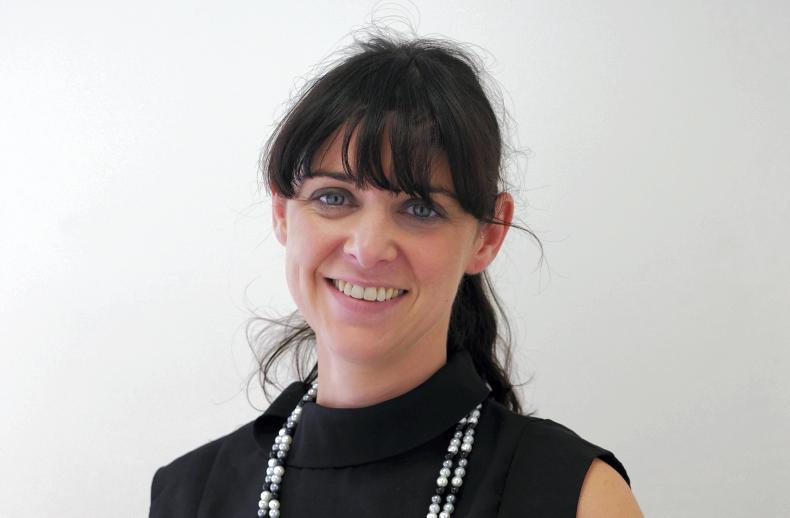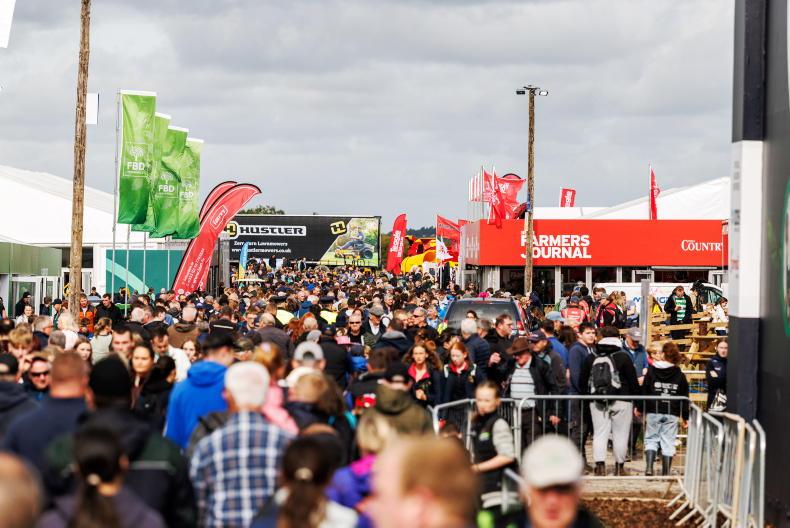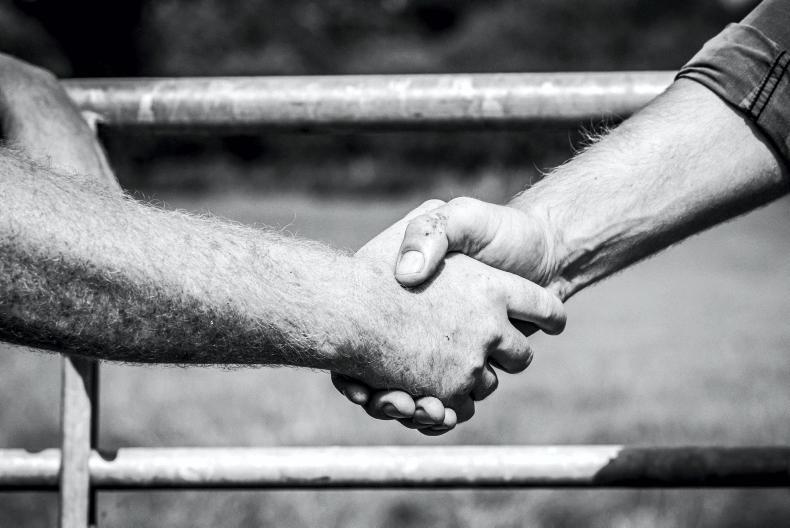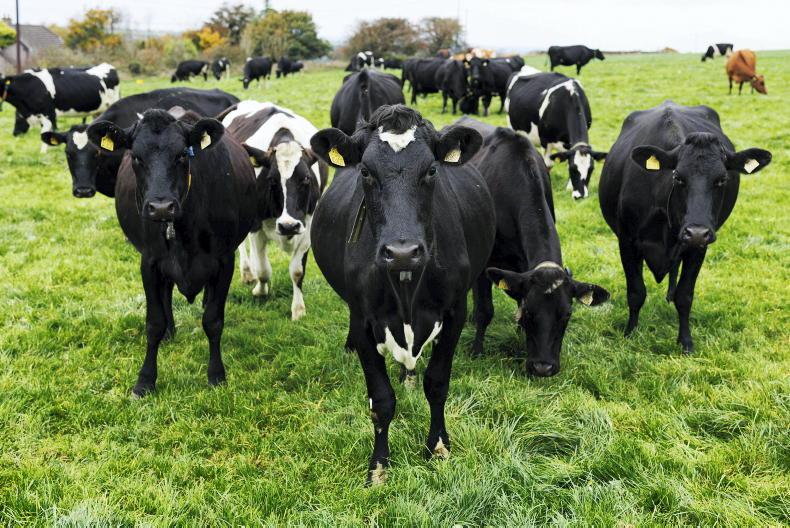In a previous career, I also used to write for the Irish Farmers Journal, albeit only once per month. That article, The Pig League, involved a lot of phone calls to farmers to get actual pig prices, checking those against other information sources to ensure accuracy and then trying to come up with a cartoon to go along with the narrative. That page invariably took me way longer to write than it should have, and this was because of my tendency to go down rabbit holes. I would find a snippet of what I thought could be helpful information and then chase after more. The Pig League was, in effect, my research project for the month.
The Census of Agriculture is an important research project on a grand scale
Often this would see me side-tracked from my short article but generally I would emerge better informed.
I always found the Central Statistics Office (CSO) a great source of information and, importantly, the staff there are very helpful. The Census of Agriculture is an important research project on a grand scale. This fantastic snapshot of the Irish agricultural sector is completed by farmers and takes place every 10 years. Apart from informing journalists and researchers, the Irish Government and the European Commission use the information to formulate and monitor agricultural policy. It also enumerates the importance of the industry. It was therefore a shame to read that the CSO has had to defer the collection of this data from this coming June because of the COVID-19 restrictions. This is especially important because this data will be essential post COVID-19.
This week, we carry interviews with researchers who have been involved with studies on both ends of the demographic spectrum
Currently, both Teagasc and University College Dublin (UCD) are involved in research projects assessing the impact COVID-19 will have on our eating habits and it is worth participating in these if you get the opportunity (bit.ly/3eE5bB8 and www.covidfood.ie). Speaking of food research, it was interesting to read about the impact a vegan diet had on Dr Cara Augustenborg’s body here – a piece of research I will not be trying.
This week, we carry interviews with researchers who have been involved with studies on both ends of the demographic spectrum – the young to the retired. While the entire country has been social distancing, it is the over 70s that have been asked to cocoon, shutting themselves off from the world outside. Although designed to protect the more vulnerable, the contribution this group play in communities and families has become obvious. This is supported by the Irish Longitudinal Study on Ageing (TILDA) from Trinity College Dublin which shows just how important this generation is, particularly in terms of childcare and voluntary work. You can read Mairead Lavery’s interview with Dr Christine McGarrigle, one of the authors of the report here.
The charity surveyed more than 19,000 young people to understand what leads to increased risks of mental health difficulties
On the opposite end of the generational gap, Odile Evans spoke with Dr Ailbhe Booth, research co-ordinator at the mental health charity Jigsaw. The charity surveyed more than 19,000 young people to understand what leads to increased risks of mental health difficulties. “Connect” is the first of their five a day for mental health.
This week Dr Mark Rowe wants us all, from the young to the not-so-young, to reach out and connect too saying that “social distancing is not emotional distancing”. All the mental health research is telling us that this is really important for us to come out the other side of this.
Read more
Escaping from Groundhog Day: the good the bad and a colouring competition
‘CHIME‘ to strengthen our response to COVID-19
In a previous career, I also used to write for the Irish Farmers Journal, albeit only once per month. That article, The Pig League, involved a lot of phone calls to farmers to get actual pig prices, checking those against other information sources to ensure accuracy and then trying to come up with a cartoon to go along with the narrative. That page invariably took me way longer to write than it should have, and this was because of my tendency to go down rabbit holes. I would find a snippet of what I thought could be helpful information and then chase after more. The Pig League was, in effect, my research project for the month.
The Census of Agriculture is an important research project on a grand scale
Often this would see me side-tracked from my short article but generally I would emerge better informed.
I always found the Central Statistics Office (CSO) a great source of information and, importantly, the staff there are very helpful. The Census of Agriculture is an important research project on a grand scale. This fantastic snapshot of the Irish agricultural sector is completed by farmers and takes place every 10 years. Apart from informing journalists and researchers, the Irish Government and the European Commission use the information to formulate and monitor agricultural policy. It also enumerates the importance of the industry. It was therefore a shame to read that the CSO has had to defer the collection of this data from this coming June because of the COVID-19 restrictions. This is especially important because this data will be essential post COVID-19.
This week, we carry interviews with researchers who have been involved with studies on both ends of the demographic spectrum
Currently, both Teagasc and University College Dublin (UCD) are involved in research projects assessing the impact COVID-19 will have on our eating habits and it is worth participating in these if you get the opportunity (bit.ly/3eE5bB8 and www.covidfood.ie). Speaking of food research, it was interesting to read about the impact a vegan diet had on Dr Cara Augustenborg’s body here – a piece of research I will not be trying.
This week, we carry interviews with researchers who have been involved with studies on both ends of the demographic spectrum – the young to the retired. While the entire country has been social distancing, it is the over 70s that have been asked to cocoon, shutting themselves off from the world outside. Although designed to protect the more vulnerable, the contribution this group play in communities and families has become obvious. This is supported by the Irish Longitudinal Study on Ageing (TILDA) from Trinity College Dublin which shows just how important this generation is, particularly in terms of childcare and voluntary work. You can read Mairead Lavery’s interview with Dr Christine McGarrigle, one of the authors of the report here.
The charity surveyed more than 19,000 young people to understand what leads to increased risks of mental health difficulties
On the opposite end of the generational gap, Odile Evans spoke with Dr Ailbhe Booth, research co-ordinator at the mental health charity Jigsaw. The charity surveyed more than 19,000 young people to understand what leads to increased risks of mental health difficulties. “Connect” is the first of their five a day for mental health.
This week Dr Mark Rowe wants us all, from the young to the not-so-young, to reach out and connect too saying that “social distancing is not emotional distancing”. All the mental health research is telling us that this is really important for us to come out the other side of this.
Read more
Escaping from Groundhog Day: the good the bad and a colouring competition
‘CHIME‘ to strengthen our response to COVID-19









SHARING OPTIONS